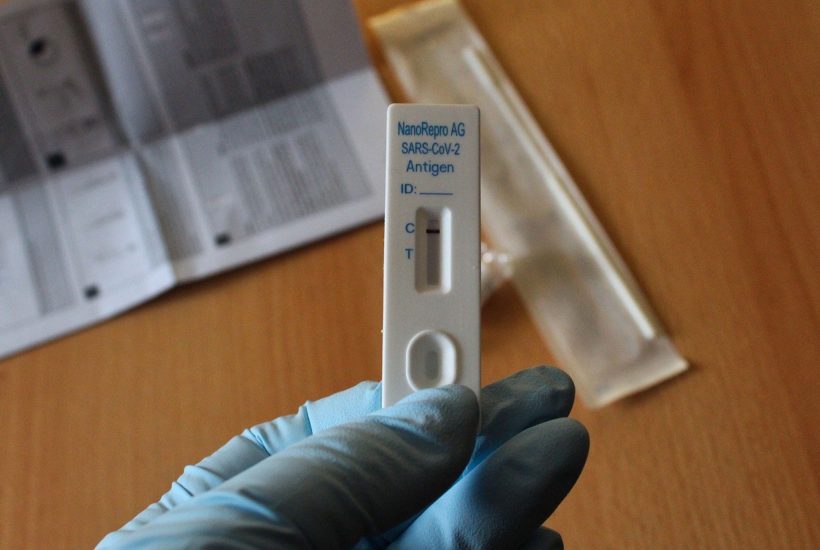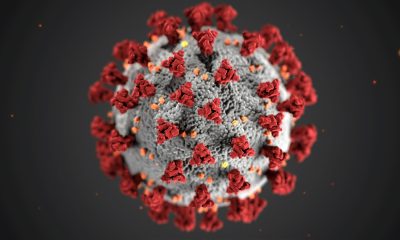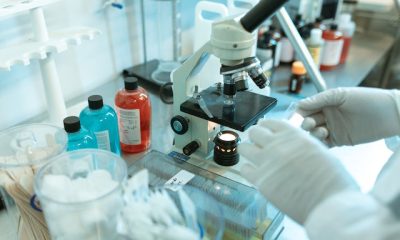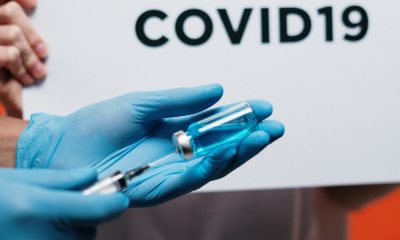Biotech
IgG Antibodies to SARS-CoV-2 Acquired after Natural Infection are Maintained Beyond 12 Months
A seropersistence study shows that IgG antibodies generated after natural infection are maintained beyond 12 months. This study reveals that the factors associated with a stable (non-descending) antibody profile and longer antibody duration were older age, higher initial antibody titers and high exposure to Covid-19. That is, that suffered by front-line workers who assisted patients with Covid-19.

A seropersistence study carried out on 306 HM Hospitales healthcare workers infected by the SARS-CoV-2 virus reveals that the IgG antibodies generated after natural infection are maintained beyond 12 months. This is the main conclusion drawn from a study coordinated by the HM Hospitales Research Foundation in collaboration with the Department of Occupational Safety and the HM Hospitales Laboratory Service. The results have just been published in the ‘European Journal of Internal Medicine’, the official journal of the European Federation of Internal Medicine.
This is the first study to measure the evolution of the kinetics of antibodies developed to SARS-CoV-2 among healthcare professionals. Among them, the average age is 44.7 years and 69.9% are women. The estimated mean time in which protection is maintained after natural infection is 375 days after the initial detection of antibodies.
Read more on the subject and find the most important business news in the world with the Born2Invest mobile app.
The estimated mean time in which protection is safeguarded is 375 days after initial antibody detection
“The findings of the present study in healthcare workers can be extrapolated to the general population and provide very valuable data in the management of the Covid-19 pandemic,” says Dr. José F. Varona, of the internal medicine department of the Hospital Universitario HM Montepríncipe. He also points out that the antibodies generated by natural infection have an estimated average duration of at least 12 months.
In this study, the observation period of the workers involved was ten months. Thus, it reveals that 76.8% of the healthcare workers in the group studied maintained seropositivity levels beyond nine months after infection, but with a progressive reduction in antibody titers. Specifically, antibody titers decreased by 82%, while they remained stable in 13.1%.
More than 75% of the workers tested retained effective antibodies against SARS-CoV-2 after nine months of follow-up
“During the study, which was carried out with differentiated cohorts studied at different periods since the beginning of the pandemic, two different dynamic antibody profiles were observed: one, more frequent, with a progressive decrease in antibody titer; and another, less frequent, of subjects who maintained stable antibody levels during almost ten months of follow-up,” Dr. Varona pointed out.
Determining factors for the IgG antibodies
This study reveals that the factors associated with a stable (non-descending) antibody profile and longer antibody duration were older age, higher initial antibody titers, and high exposure to Covid-19. That is, that suffered by front-line workers who assisted patients with Covid-19. Specifically, those with severe to moderate infection.
The factors associated with a stable and longer-lasting antibody profile were older age, higher initial antibody titers and high exposure to Covid-19. Thus, the results of the current study suggest an important role for serology in pandemic detection and monitoring. This information helps the scientific community understand the humoral response of healthcare workers exposed to SARS-CoV-2.
“Undoubtedly these results may have potential implications for the current vaccination strategy. In fact, we expect new results from this study with a longer time frame, specifically, with data extending to the second half of 2021, which will help us to better and more accurately understand the immune response to the disease,” concludes Dr. Varona.
__
(Featured image by BiggiBe via Pixabay)
DISCLAIMER: This article was written by a third party contributor and does not reflect the opinion of Born2Invest, its management, staff or its associates. Please review our disclaimer for more information.
This article may include forward-looking statements. These forward-looking statements generally are identified by the words “believe,” “project,” “estimate,” “become,” “plan,” “will,” and similar expressions. These forward-looking statements involve known and unknown risks as well as uncertainties, including those discussed in the following cautionary statements and elsewhere in this article and on this site. Although the Company may believe that its expectations are based on reasonable assumptions, the actual results that the Company may achieve may differ materially from any forward-looking statements, which reflect the opinions of the management of the Company only as of the date hereof. Additionally, please make sure to read these important disclosures.
First published in iSanidad, a third-party contributor translated and adapted the article from the original. In case of discrepancy, the original will prevail.
Although we made reasonable efforts to provide accurate translations, some parts may be incorrect. Born2Invest assumes no responsibility for errors, omissions or ambiguities in the translations provided on this website. Any person or entity relying on translated content does so at their own risk. Born2Invest is not responsible for losses caused by such reliance on the accuracy or reliability of translated information. If you wish to report an error or inaccuracy in the translation, we encourage you to contact us.

-

 Business2 weeks ago
Business2 weeks agoTopRanked.io Weekly Affiliate Digest: What’s Hot in Affiliate Marketing [Best Technology Affiliate Programs]
-

 Business1 week ago
Business1 week ago2.5 Billion People Watch Quiz Shows Every Day. Masters of Trivia (MOT) Is Letting Them Compete
-

 Crypto2 weeks ago
Crypto2 weeks agoBitcoin Steady Near $68K as ETF Outflows and Institutional Moves Shape Crypto Markets
-

 Crypto3 days ago
Crypto3 days agoMiddle East Tensions Shake Crypto as Bitcoin and Ethereum Slip

























